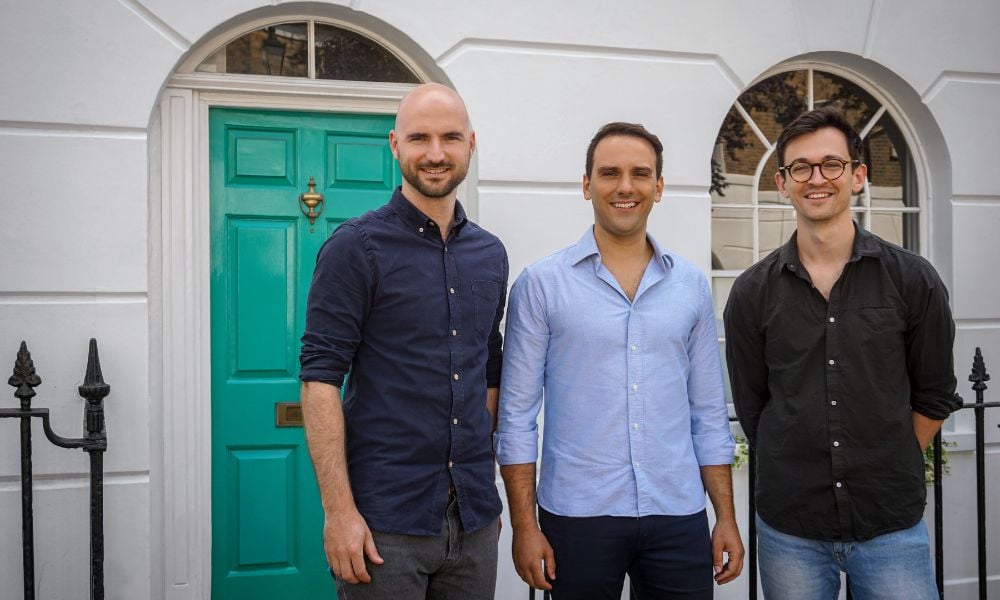Entrepreneur on innovative 'rent-to-own' platform

Last month proved to be a landmark moment for Kettle Homes, a tech-based rent-to-own platform headed by Canadian entrepreneur, Trevor Stunden (pictured left).
The Nationwide Building Society and Fair by Design Fund, which invests in companies seeking loans and equity funding up to Series A, announced they would be backing what is reputedly the UK’s first open market, rent-to-own program for first-time buyers.
Stunden, the firm’s CEO and co-founder, hopes this will be the first step in a revolution to empower first-timers who are not normally able to access traditional home financing.
“It’s very significant for us, in that the Nationwide obviously has a track record and a level of respect in the homeownership sphere that very few other organizations have. It gives us a level of confidence that other people wouldn’t otherwise be able to get,” he told Mortgage Introducer.
Potential first-time buyers interested in the programme approach the firm directly, the only requirement being that they place a minimum deposit of 2% for the home.
They go through a fairly standard application process before they can begin searching for their property, as long as it’s an existing freehold single-family home priced between £125,000 and £400,000.
Read more: Homes selling twice as fast as they did in 2019
Once a customer submits the property for review, Kettle’s property acquisitions team qualifies the home, looking at roughly between 100 and 125 data points to determine if it’s investment worthy.
Once that’s done, Kettle provides the customer with a clear view of the maximum purchase price, which could either be the maximum value Kettle would be willing to pay for the home, or the maximum of their budget.
Before Kettle Homes makes an offer, the monthly rental payment is fixed for the first 36 months. The customer is also told how much they’ll need to save in addition to the rent, as the rent does not go towards the purchase of the property.
Kettle fixes the repurchase price for the customer so they know how much they will need to pay in rent savings and what the repurchase price will be in 36 months’ time.
“What we’re doing is creating a very fixed programme, where if they follow it step by step, and that’s paying their rent, putting their savings away and doing it for 36 months, they’ll end up with a 10% deposit at the end of the 36 months, and with a much better credit profile, because we’ll have been contributing towards that with the reporting. And they’ll be in a position to be able to move from using Kettle to a repayment mortgage at the end of those six months,” Stunden explained.
The purchase price is fixed from day one, based on a 3% annual appreciation rate. So if the customer bought a house for £100,000, Kettle Homes would resell it to them for £109,273.
Stunden added that customers with “some level of adverse credit”, such as a (County Court Judgment) CCJ within the last six years, would be accepted - “as long as it’s satisfied and below £500”.
Kettle Homes will, however, not work with anybody who has had an IDA or if they’ve been declared bankrupt – for now, at least.
“We’re actually giving customers the opportunity to start building out their credit because we report all of their rental income to the three major credit rating agencies,” Stunden added. “(We’re also) giving them that time and space they need in order to establish the accounts that they would otherwise need when they’re going to get a repayment mortgage.”
There is unquestionably a market for first-time buyers; an underserved sector that is finding it increasingly hard to get on the property ladder.
The data says as much. According to figures provided by Kettle Homes, the most recent English housing survey found that young people between the ages of 25 and 34 have seen a 25% decline in homeownership rates compared to 20 years earlier, despite 48% of first-time buyers saying homeownership is more important as a result of the pandemic.
With the government failing to meet its own home building targets and property prices still rising to record levels, the UK’s housing sector is uncannily reminiscent of the US mortgage market, where low inventory (at least until very recently) and soaring home prices have also kept would be first-time buyers at bay.
So it’s no surprise that Kettle Homes’ programme is similar to those launched by tech start-ups in the US in recent times, although with some notable differences.
Stunden explained: “Those firms had quite a low conversion rate, and the reason why is because the types of customers they were focused on were generally people who historically had really bad credit and put themselves in an adverse situation - and this is not something that we were going to do.”
Stunden has ambitious plans for Kettle Homes. Within two years the firm is looking to buy its first 1,000 homes, increase that to 2,000 homes by year three, and to 5,000 homes in year four. Once it gets up to scale the plan is to increase substantially to 10,000 homes a year.
Read more: "Antiquated" checks failing underserved borrowers - head
And although the catchment area is currently limited to outside London in addition to Birmingham, Coventry and Nottingham, the idea is to expand to the rest of the country within two years.
For Stunden, the scheme goes way beyond being a mere business venture.
“Helping people get their foot on the ladder is the single greatest way to establish wealth here in the UK. It’s also the best way to alleviate poverty in the country,” he said.
“By establishing the tenancy rights that you have as a homeowner versus being a renter, you can start to invest both in your family and yourself in the community. There are studies that show there is actually a decline in crime rates within communities that had increased rates of homeownership.”



